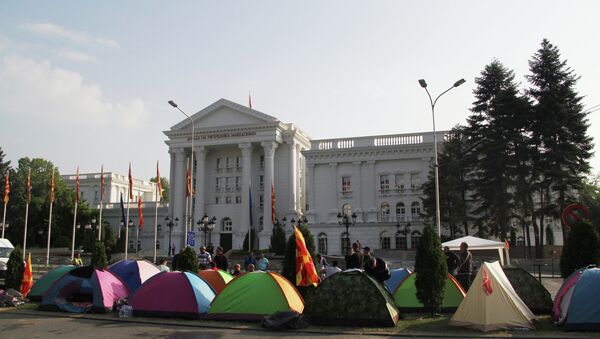Last Sunday, an anti-government protest took place on the streets of the Macedonian capital Skopje. During the protest, Macedonian opposition leader Zoran Zaev blamed the government of current Prime Minister Nikola Gruevski for Macedonia's social and economic problems, and accused several Cabinet members of corruption. Zaev demanded the resignation of the current government and called for the creation of a new transitional government.
After the outbreak of violence in Skopje, everyone suddenly realized the importance of Macedonia. European Parliament held a plenary session on May 20, during which MPs discussed how the EU should act to help stabilize Macedonia, the country that "has clear European perspective."
European Commission Vice-President Kristalina Georgieva also stressed the EU's role in bringing peace and security to Macedonia, while attending a graduation ceremony for students of the American University in Bulgaria, Sofia News Agency reported.
Although Macedonia filed its application for EU membership back in 2005, Macedonia is still a candidate country and is yet to enter accession negotiations. Over the period of 10 years not a lot of progress has been achieved in making Macedonia a member of the EU.
However, as soon as the political situation in Macedonia became volatile, the EU suddenly remembered about the small Balkan nation. Political leaders started to talk about the "imminent future of Macedonia" as part of the EU.



